Here are my favorite poems about betrayal categorized:
- Famous poems about betrayal
- Poems about betrayal by famous poets
- Poems about broken trust
- Dark poems about betrayal
So if you want the best poems about betrayal, then you’re in the right place.
Let’s jump right in!
- 113 Flabbergasting Poems About Lies and Truth
- 55 Self-Absorbed Poems About Vanity
- 35 Emotional Poems About Deception
- 103 Tempting Poems About Lies
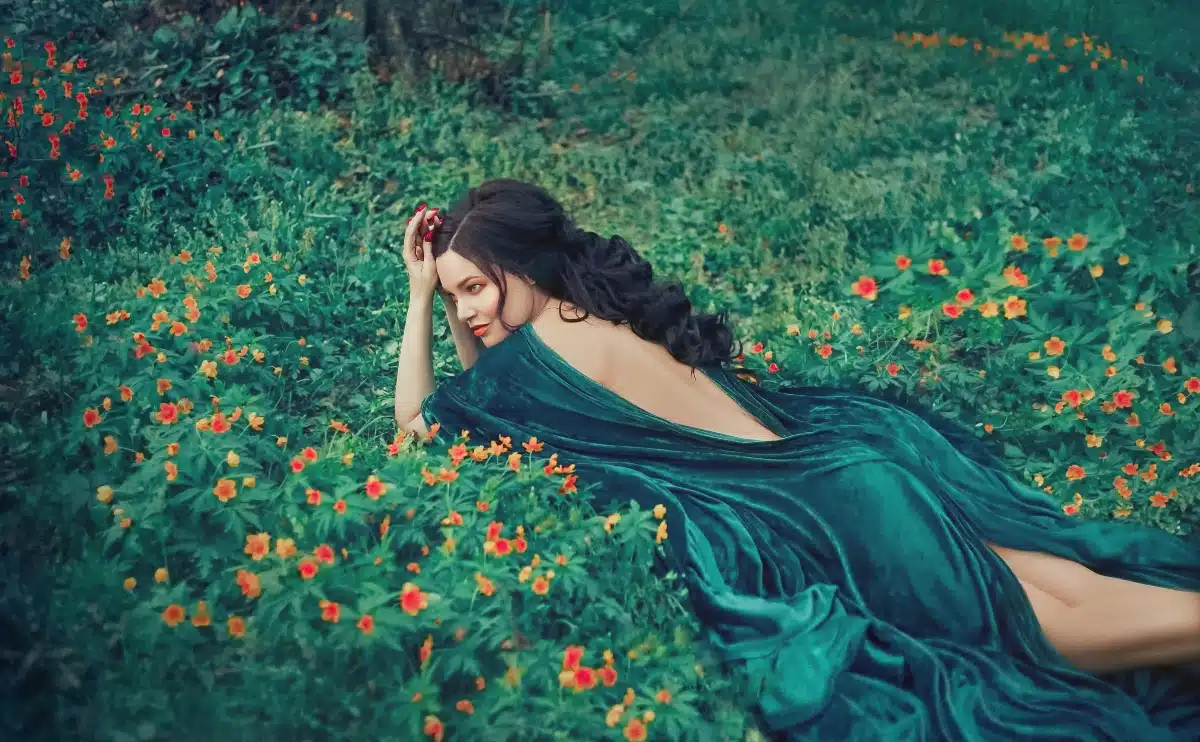
Crushing Poems About Betrayal
Explore the complex emotions of betrayal through our curated collection of the best poems.
This selection includes renowned works by famous poets, as well as darker pieces that delve into the sinister nature of betrayal.
From the sting of broken trust to the ache of deceit, these poems capture the myriad ways in which betrayal can impact us.
Discover the best betrayal poems all in one place and immerse yourself in the power of poetry to illuminate the human experience.
Read on and enjoy!
My #1 Favorite Poem About Betrayal

“Betrayed” by John Clare
Dream not of love, to think it like
What waking love may prove to be,
For I dreamed so and broke my heart,
When my false lover slighted me.
Love, like to flowers, is sweet when green;
The rose in bud aye best appears;
And she that loves a handsome man
Should have more wit than she has years.
I put my finger in a bush,
Thinking the sweeter rose to find;
I pricked my finger to the bone,
And left the sweetest rose behind.
I threw a stone into the sea,
And deep it sunk into the sand,
And so did my poor heart in me
When my false lover left the land.
I watched the sun an hour too soon
Set into clouds behind the town;
So my false lover left, and said
“Good night” before the day was down.
I cropt a lily from the stalk,
And in my hand it died away;
So did my joy, so will my heart,
In false love’s cruel grasp decay.
Famous Poems About Betrayal
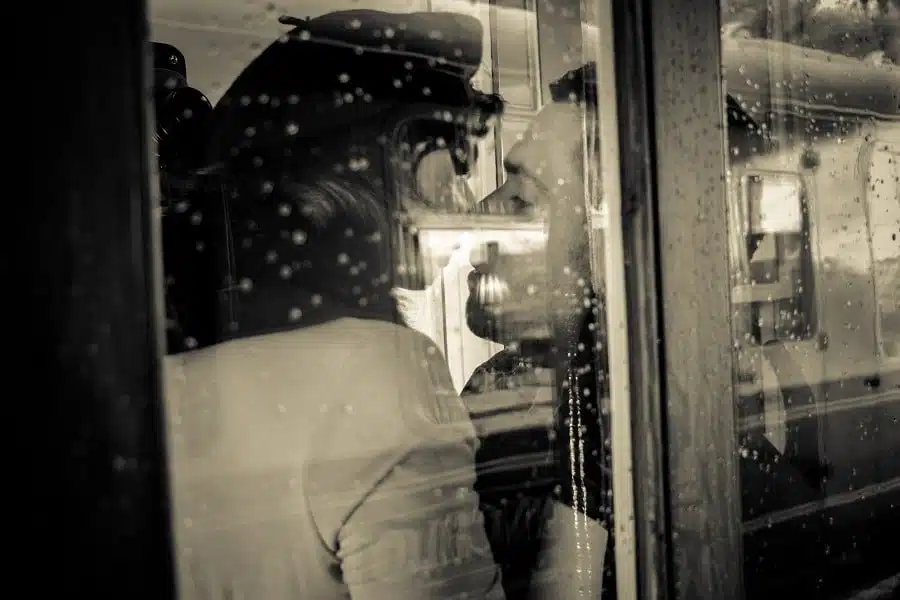
“Faith” by Frances Anne Kemble
Better trust all and be deceived,
And weep that trust and that deceiving,
Than doubt one heart that, if believed,
Had blessed one’s life with true believing.
O, in this mocking world too fast
The doubting fiend o’ertakes our youth;
Better be cheated to the last
Than lose the blessed hope of truth.
“Ashes of Life” by Edna St. Vincent Millay
Love has gone and left me and the days are all alike;
Eat I must, and sleep I will, — and would that night were here!
But ah! — to lie awake and hear the slow hours strike!
Would that it were day again! — with twilight near!
Love has gone and left me and I don’t know what to do;
This or that or what you will is all the same to me;
But all the things that I begin I leave before I’m through, —
There’s little use in anything as far as I can see.
Love has gone and left me, — and the neighbors knock and borrow,
And life goes on forever like the gnawing of a mouse, —
And to-morrow and to-morrow and to-morrow and to-morrow
There’s this little street and this little house.
“Fidelity in Doubt” by Guiraud Le Roux
Come, lady, to my song incline,
The last that shall assail thine ear.
None other cares my strains to hear,
And scarce thou feign’st thyself therewith delighted!
Nor know I well if I am loved or slighted;
But this I know, thou radiant one and sweet,
That, loved or spurned, I die before thy feet!
Yea, I will yield this life of mine
In every deed, if cause appear,
Without another boon to cheer.
Honor it is to be by thee incited
To any deed; and I, when most benighted
By doubt, remind me that times change and fleet,
And brave men still do their occasion meet.

“Solitude” by Ella Wheeler Wilcox
Laugh, and the world laughs with you;
Weep, and you weep alone;
For the sad old earth must borrow its mirth,
But has trouble enough of its own.
Sing, and the hills will answer;
Sigh, it is lost on the air;
The echoes bound to a joyful sound,
But shrink from voicing care.
Rejoice, and men will seek you;
Grieve, and they turn and go;
They want full measure of all your pleasure,
But they do not need your woe.
Be glad, and your friends are many;
Be sad, and you lose them all,
There are none to decline your nectared wine,
But alone you must drink life’s gall.
Feast, and your halls are crowded;
Fast, and the world goes by.
Succeed and give, and it helps you live,
But no man can help you die.
There is room in the halls of pleasure
For a large and lordly train,
But one by one we must all file on
Through the narrow aisles of pain.
“The Shadow Rose” by Robert Cameron Rogers
A Noisette on my garden path
An ever-swaying shadow throws;
But if I pluck it strolling by,
I pluck the shadow with the rose.
Just near enough my heart you stood
To shadow it,—but was it fair
In him, who plucked and bore you off,
To leave your shadow lingering there?
“Ashes of Roses” by Elaine Goodale Eastman
Soft on the sunset sky
Bright daylight closes,
Leaving, when light doth die,
Pale hues that mingling lie,—
Ashes of roses.
When love’s warm sun is set,
Love’s brightness closes;
Eyes with hot tears are wet,
In hearts there linger yet
Ashes of roses.

“Love Not” by Caroline Elizabeth Sarah (Sheridan) Norton
Love not, love not, ye hapless sons of clay!
Hope’s gayest wreaths are made of earthly flowers,—
Things that are made to fade and fall away
Ere they have blossomed for a few short hours.
Love not!
Love not! the thing ye love may change;
The rosy lip may cease to smile on you,
The kindly-beaming eye grow cold and strange,
The heart still warmly beat, yet not be true.
Love not!
Love not! the thing you love may die,—
May perish from the gay and gladsome earth;
The silent stars, the blue and smiling sky,
Beam o’er its grave, as once upon its birth.
Love not!
Love not! O warning vainly said
In present hours as in years gone by!
Love flings a halo round the dear one’s head,
Faultless, immortal, till they change or die.
Love not!
Song: “A Weary Lot Is Thine, Fair Maid” by Sir Walter Scott
“A weary lot is thine, fair maid,
A weary lot is thine!
To pull the thorn thy brow to braid,
And press the rue for wine!
A lightsome eye, a soldier’s mien,
A feather of the blue,
A doublet of the Lincoln green—
No more of me you knew,
My love!
No more of me you knew.
“The morn is merry June, I trow—
The rose is budding fain;
But she shall bloom in winter snow
Ere we two meet again.”
He turned his charger as he spake,
Upon the river shore;
He gave his bridle-rein a shake,
Said, “Adieu for evermore,
My love!
And adieu for evermore.”
“A Woman’s Love” by John Hay
A sentinel angel, sitting high in glory,
Heard this shrill wail ring out from Purgatory:
“Have mercy, mighty angel, hear my story!
“I loved,—and, blind with passionate love, I fell.
Love brought me down to death, and death to Hell;
For God is just, and death for sin is well.
“I do not rage against his high decree,
Nor for myself do ask that grace shall be;
But for my love on earth who mourns for me.
“Great Spirit! Let me see my love again
And comfort him one hour, and I were fain
To pay a thousand years of fire and pain.”
Then said the pitying angel, “Nay, repent
That wild vow! Look, the dial-finger’s bent
Down to the last hour of thy punishment!”
But still she wailed, “I pray thee, let me go!
I cannot rise to peace and leave him so.
O, let me soothe him in his bitter woe!”
The brazen gates ground sullenly ajar,
And upwards, joyous, like a rising star,
She rose and vanished in the ether far.
But soon adown the dying sunset sailing,
And like a wounded bird her pinions trailing,
She fluttered back, with broken-hearted wailing.
She sobbed, “I found him by the summer sea
Reclined, his head upon a maiden’s knee,—
She curled his hair and kissed him. Woe is me!”
She wept, “Now let my punishment begin!
I have been fond and foolish. Let me in
To expiate my sorrow and my sin.”
The angel answered, “Nay, sad soul, go higher!
To be deceived in your true heart’s desire
Was bitterer than a thousand years of fire!”
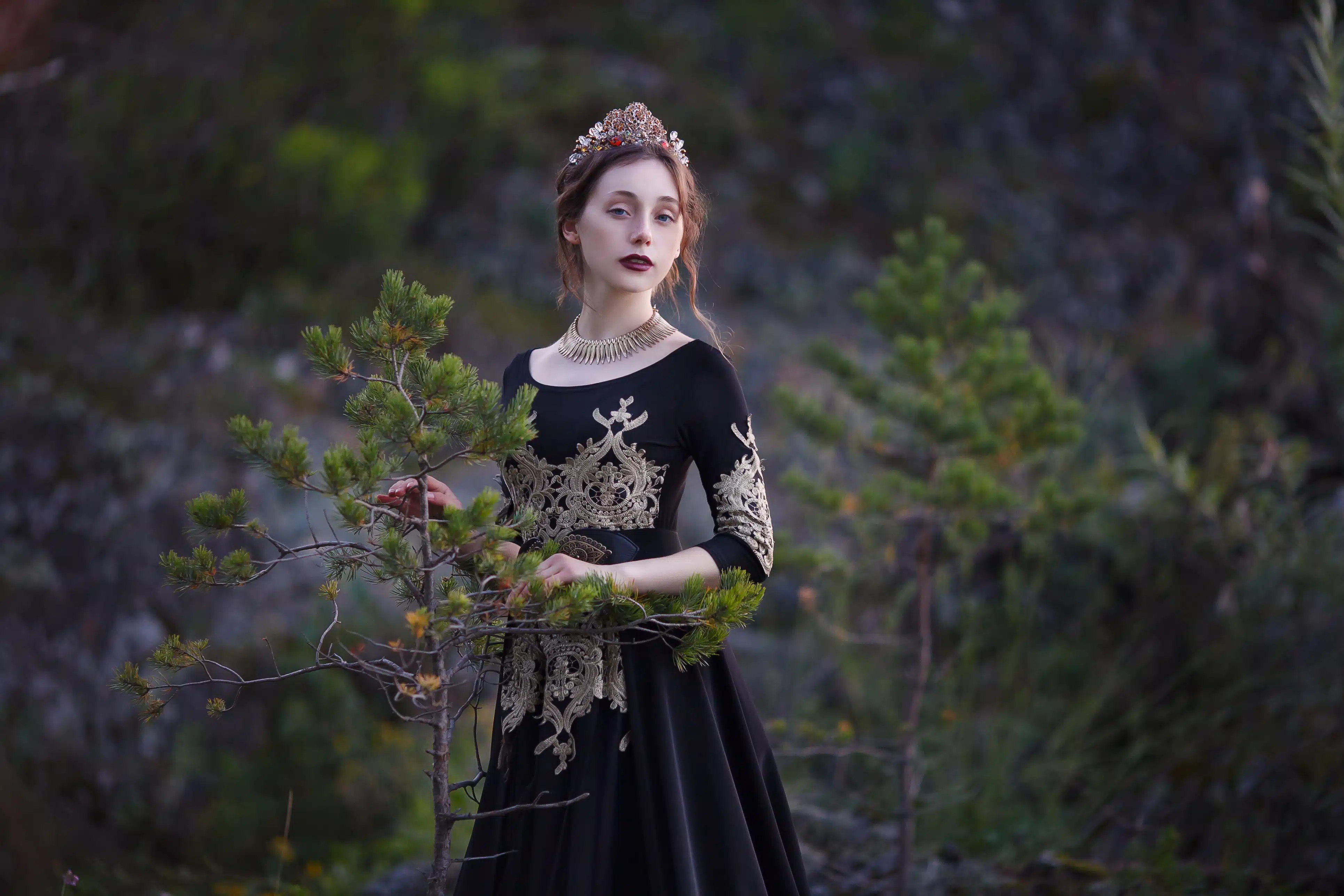
“Eurydice” by Willa Cather
A bitter doom they did upon her place:
She might not touch his hand nor see his face
The while he led her up from death and dreams
Into his world of bright Arcadian streams.
For all of him she yearned to touch and see,
Only the sweet ghost of his melody;
For all of him she yearned to have and hold,
Only the wraith of song, sweet, sweet and cold.
With only song to stop her ears by day
And hold above her frozen heart always,
And strain within her arms and glad her sight,
With only song to feed her lips by night,
To lay within her bosom only song—
Sweetheart! The way from Hell’s so long, so long!
“Disillusion” by Victoria Mary Sackville-West
I wrote the burning words to you
That meant so much to me.
I sent them speeding straight to you,
To you across the sea;
I waited with sure reckoning
For your reply to me.
I waited, and the counted day
Fruitlessly came and went;
I made excuse for the delay,
Pitiable confident.
I knew to-morrow’s light must bring
The words you must have sent.
And still I stand on that dim verge
And look across the sea;
The waves have changed into a dirge
Their volubility.
And in my disillusioned heart
Is a little grave for me.
But still with shaded eyes I gaze
As mournfully I sing,
And one by one the trailing days,
As they no message bring,
Fall with their slow monotony
As beads fall from a string.
Poems About Betrayal by Famous Poets

“Sonnet 151” by William Shakespeare
Love is too young to know what conscience is,
Yet who knows not conscience is born of love?
Then, gentle cheater, urge not my amiss,
Lest guilty of my faults thy sweet self prove:
For, thou betraying me, I do betray
My nobler part to my gross body’s treason;
My soul doth tell my body that he may
Triumph in love; flesh stays no farther reason,
But rising at thy name doth point out thee,
As his triumphant prize. Proud of this pride,
He is contented thy poor drudge to be,
To stand in thy affairs, fall by thy side.
No want of conscience hold it that I call
Her love, for whose dear love I rise and fall.
“This Door You Might Not Open” by Edna St. Vincent Millay
This door you might not open, and you did;
So enter now, and see for what slight thing
You are betrayed… Here is no treasure hid,
No cauldron, no clear crystal mirroring
The sought-for Truth, no heads of women slain
For greed like yours, no writhings of distress;
But only what you see… Look yet again;
An empty room, cobwebbed and comfortless.
Yet this alone out of my life I kept
Unto myself, lest any know me quite;
And you did so profane me when you crept
Unto the threshold of this room tonight
That I must never more behold your face.
This now is yours. I seek another place.
“Sonnet 138” by William Shakespeare
When my love swears that she is made of truth,
I do believe her though I know she lies,
That she might think me some untutor’d youth,
Unlearned in the world’s false subtleties.
Thus vainly thinking that she thinks me young,
Although she knows my days are past the best,
Simply I credit her false-speaking tongue:
On both sides thus is simple truth suppressed:
But wherefore says she not she is unjust?
And wherefore say not I that I am old?
O! love’s best habit is in seeming trust,
And age in love, loves not to have years told:
Therefore I lie with her, and she with me,
And in our faults by lies we flatter’d be.

“Treachery” by Walter De La Mare
She had amid her ringlets bound
Green leaves to rival their dark hue;
How could such locks with beauty bound
Dry up their dew,
Wither them through and through?
She had within her dark eyes lit
Sweet fires to burn all doubt away;
Yet did those fires, in darkness lit,
Burn but a day,
Not even till twilight stay.
She had within a dusk of words
A vow in simple splendour set;
How, in the memory of such words,
Could she forget
That vow – the soul of it?
“Oh, Oh, You Will be Sorry for that Word” by Edna St. Vincent Millay
Oh, oh, you will be sorry for that word!
Give back my book and take my kiss instead.
Was it my enemy or my friend I heard,
“What a big book for such a little head!”
Come, I will show you now my newest hat,
And you may watch me purse my mouth and prink!
Oh, I shall love you still, and all of that.
I never again shall tell you what I think.
I shall be sweet and crafty, soft and sly;
You will not catch me reading any more:
I shall be called a wife to pattern by;
And some day when you knock and push the door,
Some sane day, not too bright and not too stormy,
I shall be gone, and you may whistle for me.
“Treachery” by Madison Julius Cawein
I.
Came a spicy smell of showers
On the purple wings of night,
And a pearl-encrusted crescent
On the lake looked still and white,
While a sound of distant singing
From the vales rose sad and light.
II.
Dripped the musk of sodden roses
From their million heavy sprays,
And the nightingales were sobbing
Of the roses amorous praise
Where the raven down of even
Caught the moonlight’s bleaching rays.
III.
And the turrets of the palace,
From its belt of ancient trees,
On the mountain rose romantic
White as foam from troubled seas;
And the murmur of an ocean
Smote the chords of ev’ry breeze.
IV.
Where the moon shone on the terrace
And its fountain’s lisping foam;
Where the bronzen urns of flowers
Breathed faint perfume thro’ the gloam,
By the alabaster Venus
‘Neath the quiet stars we’d roam.
V.
And we stopped beside the statue
Of the marble Venus there
Deeply pedestaled ‘mid roses,
Who their crimson hearts laid bare,
Breathing out their lives in fragrance
At her naked feet and fair.
VI.
And we marked the purple dingles
Where the lazy vapors lolled,
Like thin, fleecy ribs of moonlight
Touched with amethyst and gold;
And we marked the wild deer glimmer
Like dim specters where they strolled….
VII.
But from out those treach’rous roses
Crept a serpent and it stung,
Poisoned him who’d tuned my heart-strings
Till for him alone they sung,
Froze the nerves of hands that only
From its chords a note had wrung.
VIII.
Now the nightingales in anguish
To cold, ashen roses moan;
Now a sound of desolate wailing
In the darkened palace lone
From a harp ëolian quavers
Broken on an empty throne.

“To A Young Girl” by William Butler Yeats
My dear, my dear, I know
More than another
What makes your heart beat so;
Not even your own mother
Can know it as I know,
Who broke my heart for her
When the wild thought,
That she denies
And has forgot,
Set all her blood astir
And glittered in her eyes
“The Kiss” by Sara Teasdale
I hoped that he would love me,
And he has kissed my mouth,
But I am like a stricken bird
That cannot reach the south.
For though I know he loves me,
To-night my heart is sad;
His kiss was not so wonderful
As all the dreams I had.
“A Fallen Leaf” by Ella Wheeler Wilcox
A trusting little leaf of green,
A bold audacious frost;
A rendezvous, a kiss or two,
And youth for ever lost.
Ah, me!
The bitter, bitter cost.
A flaunting patch of vivid red,
That quivers in the sun;
A windy gust, a grave of dust,
The little race is run.
Ah, me!
Were that the only one.
Poems About Broken Trust

“May” by Sara Teasdale
The wind is tossing the lilacs,
The new leaves laugh in the sun,
And the petals fall on the orchard wall,
But for me the spring is done.
Beneath the apple blossoms
I go a wintry way,
For love that smiled in April
Is false to me in May.
“You Say You Are Holy” by Stephen Crane
You say you are holy,
And that
Because I have not seen you sin.
Aye, but there are those
Who see you sin, my friend.
“Betrayal” by Walter De La Mare
She will not die, they say,
She will but put her beauty by
And hie away.
Oh, but her beauty gone, how lonely
Then will seem all reverie,
How black to me!
All things will sad be made
And every hope a memory,
All gladness dead.
Ghosts of the past will know
My weakest hour, and whisper to me,
And coldly go.
And hers in deep of sleep,
Clothed in its mortal beauty I shall see,
And, waking, weep.
Naught will my mind then find
In man’s false Heaven my peace to be:
All blind, and blind.
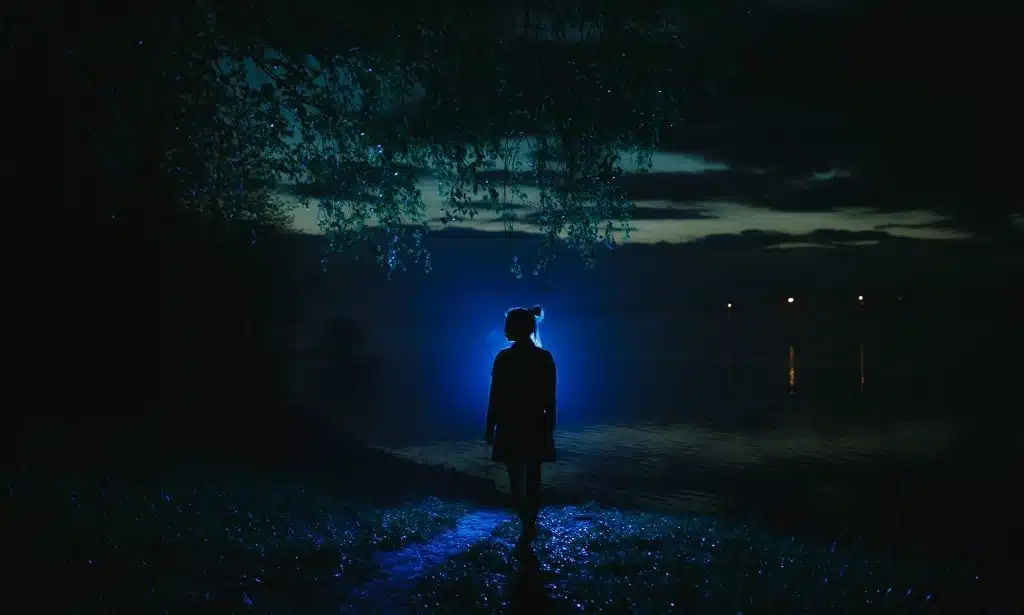
“Proud of My Broken Heart Since Thou Didst Break It” by Emily Dickinson
Proud of my broken heart since thou didst break it,
Proud of the pain I did not feel till thee,
Proud of my night since thou with moons dost slake it,
Not to partake thy passion, my humility.
“The Wind and the Moon” by George Macdonald
Said the Wind to the Moon, “I will blow you out;
You stare
In the air
Like a ghost in a chair,
Always looking what I am about —
I hate to be watched; I’ll blow you out.”
The Wind blew hard, and out went the Moon.
So, deep
On a heap
Of clouds to sleep,
Down lay the Wind, and slumbered soon,
Muttering low, “I’ve done for that Moon.”
He turned in his bed; she was there again!
On high
In the sky,
With her one ghost eye,
The Moon shone white and alive and plain.
Said the Wind, “I will blow you out again.”
The Wind blew hard, and the Moon grew dim.
“With my sledge,
And my wedge,
I have knocked off her edge!
If only I blow right fierce and grim,
The creature will soon be dimmer than dim.”
He blew and he blew, and she thinned to a thread.
“One puff
More’s enough
To blow her to snuff!
One good puff more where the last was bred,
And glimmer, glimmer, glum will go the thread.”
He blew a great blast, and the thread was gone.
In the air
Nowhere
Was a moonbeam bare;
Far off and harmless the shy stars shone —
Sure and certain the Moon was gone!
The Wind he took to his revels once more;
On down,
In town,
Like a merry—mad clown,
He leaped and halloed with whistle and roar —
“What’s that?” The glimmering thread once more!
He flew in a rage — he danced and blew;
But in vain
Was the pain
Of his bursting brain;
For still the broader the Moon—scrap grew,
The broader he swelled his big cheeks and blew.
Slowly she grew — till she filled the night,
And shone
On her throne
In the sky alone,
A matchless, wonderful silvery light,
Radiant and lovely, the queen of the night.
Said the Wind: “What a marvel of power am I!
With my breath,
Good faith!
I blew her to death —
First blew her away right out of the sky —
Then blew her in; what strength have I!
But the Moon she knew nothing about the affair;
For high
In the sky,
With her one white eye,
Motionless, miles above the air,
She had never heard the great Wind blare.
“On Pain” by Kahlil Gibran
And a woman spoke, saying, Tell us of Pain.
And he said:
Your pain is the breaking of the shell that encloses your understanding.
Even as the stone of the fruit must break, that its heart may stand in the sun, so must you know pain.
And could you keep your heart in wonder at the daily miracles of your life your pain would not seem less wondrous than your joy;
And you would accept the seasons of your heart, even as you have always accepted the seasons that pass over your fields.
And you would watch with serenity through the winters of your grief.
Much of your pain is self-chosen.
It is the bitter potion by which the physician within you heals your sick self.
Therefore trust the physician, and drink his remedy in silence and tranquility:
For his hand, though heavy and hard, is guided by the tender hand of the Unseen,
And the cup he brings, though it burn your lips, has been fashioned of the clay which the Potter has moistened with His own sacred tears.

“The Last Betrayal” by Edith Nesbit
And I shall lie alone at last,
Clear of the stream that ran so fast,
And feel the flower roots in my hair,
And in my hands the roots of trees;
Myself wrapt in the ungrudging peace
That leaves no pain uncovered anywhere.
What–this hope left? this way not barred?
This last best treasure without guard?
This heaven free–no prayers to pay?
Fool–are the Rulers of men asleep?
Thou knowest what tears They bade thee weep,
But, when peace comes, ’tis thou wilt sleep, not they.
“Wild May” by Claude McKay
Aleta mentions in her tender letters,
Among a chain of quaint and touching things,
That you are feeble, weighted down with fetters,
And given to strange deeds and mutterings.
No longer without trace or thought of fear,
Do you leap to and ride the rebel roan;
But have become the victim of grim care,
With three brown beauties to support alone.
But none the less will you be in my mind,
Wild May that cantered by the risky ways,
With showy head-cloth flirting in the wind,
From market in the glad December days;
Wild May of whom even other girls could rave
Before sex tamed your spirit, made you slave.
“Modern Love: XXXVII” by George Meredith
Along the garden terrace, under which
A purple valley (lighted at its edge
By smoky torch-flame on the long cloud-ledge
Whereunder dropped the chariot), glimmers rich,
A quiet company we pace, and wait
The dinner-bell in prae-digestive calm.
So sweet up violet banks the Southern balm
Breathes round, we care not if the bell be late:
Though here and there grey seniors question Time
In irritable coughings. With slow foot
The low rosed moon, the face of Music mute,
Begins among her silent bars to climb.
As in and out, in silvery dusk, we tread,
I hear the laugh of Madam, and discern
My Lady’s heel before me at each turn.
Our tragedy, is it alive or dead?
Dark Poems About Betrayal
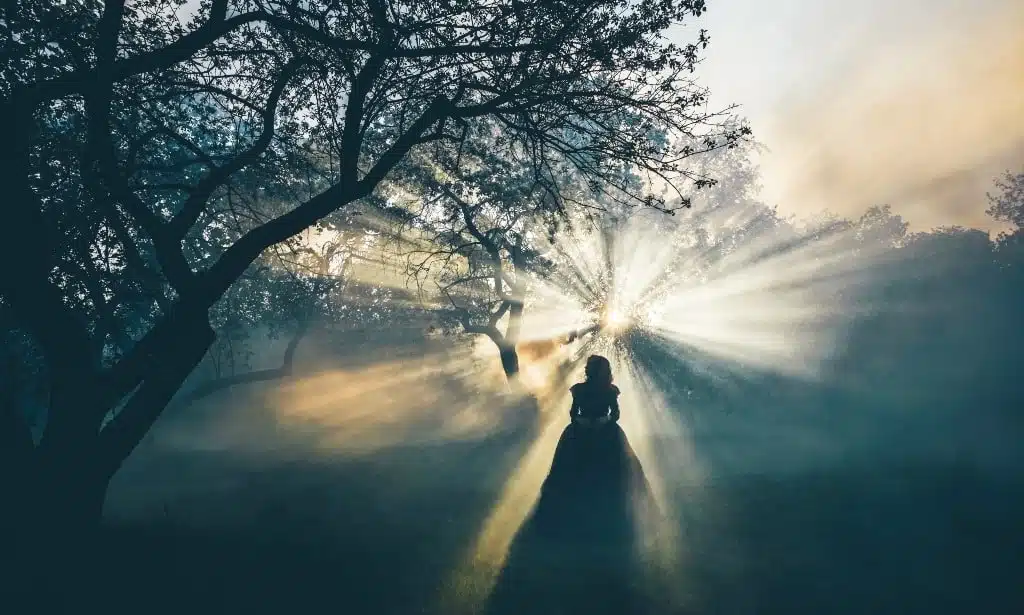
“Agatha” by Alfred Austin
She wanders in the April woods,
That glisten with the fallen shower;
She leans her face against the buds,
She stops, she stoops, she plucks a flower.
She feels the ferment of the hour:
She broodeth when the ringdove broods;
The sun and flying clouds have power
Upon her cheek and changing moods.
She cannot think she is alone,
As over her senses warmly steal
Floods of unrest she fears to own
And almost dreads to feel.
Among the summer woodlands wide
Anew she roams, no more alone;
The joy she feared is at her side,
Spring’s blushing secret now is known.
The primrose and its mates have flown,
The thrush’s ringing note hath died;
But glancing eye and glowing tone
Fall on her from her god, her guide.
She knows not, asks not, what the goal,
She only feels she moves towards bliss,
And yields her pure unquestioning soul
To touch and fondling kiss.
And still she haunts those woodland ways,
Though all fond fancy finds there now
To mind of spring or summer days,
Are sodden trunk and songless bough.
The past sits widowed on her brow,
Homeward she wends with wintry gaze,
To walls that house a hollow vow,
To hearth where love hath ceased to blaze;
Watches the clammy twilight wane,
With grief too fixed for woe or tear;
And, with her forehead ’gainst the pane,
Envies the dying year.
“The Puppet-Player” by Angelina Weld Grimké
Sometimes it seems as though some puppet-player,
A clenched claw cupping a craggy chin
Sits just beyond the border of our seeing,
Twitching the strings with slow, sardonic grin.
“Modern Love: XVII” by George Meredith
At dinner, she is hostess, I am host.
Went the feast ever cheerfuller? She keeps
The Topic over intellectual deeps
In buoyancy afloat. They see no ghost.
With sparkling surface-eyes we ply the ball:
It is in truth a most contagious game:
‘Hiding the skeleton,’ shall be its name.
Such play as this, the devils might appal!
But here’s the greater wonder; in that we
Enamoured of an acting naught can tire,
Each other, like true hypocrites, admire;
Warm-lighted looks, Love’s ephemoerioe,
Shoot gaily o’er the dishes and the wine.
We waken envy of our happy lot.
Fast, sweet, and golden, shows the marriage-knot.
Dear guests, you now have seen Love’s corpse-light shine.
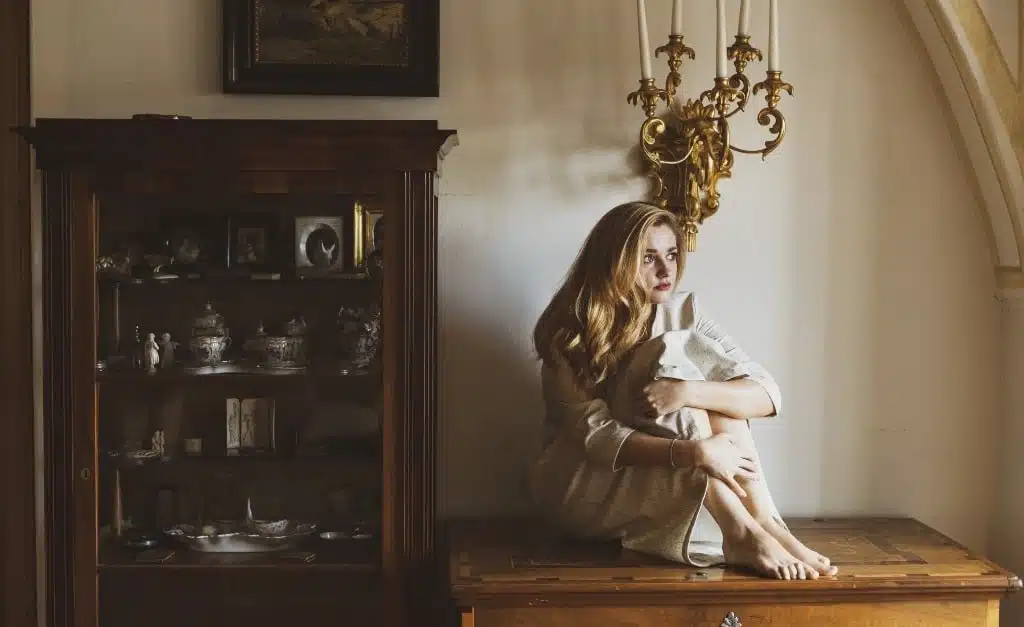
“To a Portrait” by Arthur Symons
A pensive photograph
Watches me from the shelf—
Ghost of old love, and half
Ghost of myself!
How the dear waiting eyes
Watch me and love me yet—
Sad home of memories,
Her waiting eyes!
Ghost of old love, wronged ghost,
Return: though all the pain
Of all once loved, long lost,
Come back again.
Forget not, but forgive!
Alas, too late I cry.
We are two ghosts that had their chance to live,
And lost it, she and I.
“Lilian Stewart” by Edgar Lee Masters
I was the daughter of Lambert Hutchins,
Born in a cottage near the grist-mill,
Reared in the mansion there on the hill,
With its spires, bay-windows, and roof of slate.
How proud my mother was of the mansion!
How proud of father’s rise in the world!
And how my father loved and watched us,
And guarded our happiness.
But I believe the house was a curse,
For father’s fortune was little beside it;
And when my husband found he had married
A girl who was really poor,
He taunted me with the spires,
And called the house a fraud on the world,
A treacherous lure to young men, raising hopes
Of a dowry not to be had;
And a man while selling his vote
Should get enough from the people’s betrayal
To wall the whole of his family in.
He vexed my life till I went back home
And lived like an old maid till I died,
Keeping house for father.
“Sleep” by John Gould Fletcher
Do you give yourself to me utterly,
Body and no-body, flesh and no-flesh
Not as a fugitive, blindly or bitterly,
But as a child might, with no other wish?
Yes, utterly.
Then I shall bear you down my estuary,
Carry you and ferry you to burial mysteriously,
Take you and receive you,
Consume you, engulf you,
In the huge cave, my belly, lave you
With huger waves continually.
And you shall cling and clamber there
And slumber there, in that dumb chamber,
Beat with my blood’s beat, hear my heart move
Blindly in bones that ride above you,
Delve in my flesh, dissolved and bedded,
Through viewless valves embodied so –
Till daylight, the expulsion and awakening,
The riving and the driving forth,
Life with remorseless forceps beckoning –
Pangs and betrayal of harsh birth.
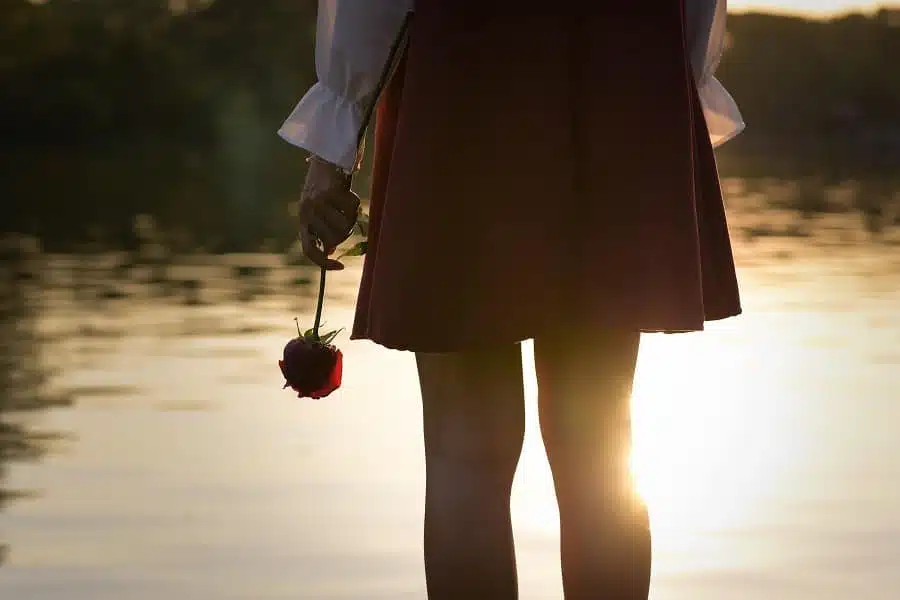
“The Sick Rose” by William Blake
O Rose, thou art sick!
The invisible worm
That flies in the night,
In the howling storm,
Has found out thy bed
Of crimson joy:
And his dark secret love
Does thy life destroy.
“Julia Miller” by Edgar Lee Masters
We quarreled that morning,
For he was sixty-five, and I was thirty,
And I was nervous and heavy with the child
Whose birth I dreaded.
I thought over the last letter written me
By that estranged young soul
Whose betrayal of me I had concealed
By marrying the old man.
Then I took morphine and sat down to read.
Across the blackness that came over my eyes
I see the flickering light of these words even now:
“And Jesus said unto him, Verily
I say unto thee, To-day thou shalt
Be with me in paradise.”
“Sonnet: With How Sad Steps” by Sir Philip Sidney
With how sad steps, O Moon! thou climb’st the skies,
How silently, and with how wan a face!
What may it be, that even in heavenly place
That busy Archer his sharp arrows tries?
Sure, if that long-with-love-acquainted eyes 5
Can judge of love, thou feel’st a lover’s case;
I read it in thy looks; thy languished grace
To me, that feel the like, thy state descries.
Then, even of fellowship, O Moon, tell me,
Is constant love deemed there but want of wit? 10
Are beauties there as proud as here they be?
Do they above love to be loved, and yet
Those lovers scorn whom that love doth possess?
Do they call virtue there ungratefulness?
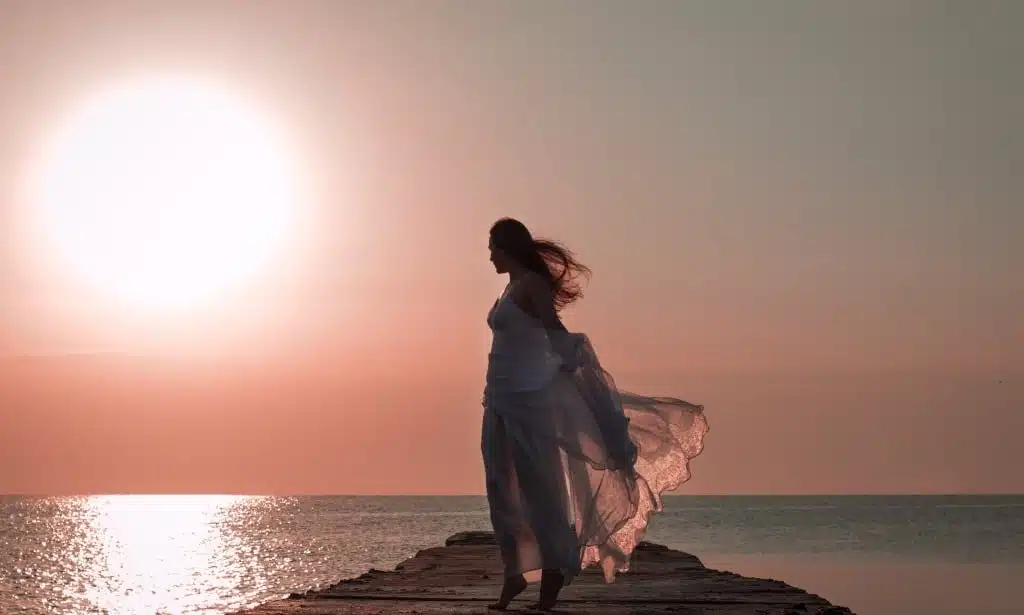
“The Banks O’ Doon” by Robert Burns
Ye banks and braes o’ bonnie Doon,
How can ye bloom sae fresh and fair?
How can ye chant, ye little birds,
And I sae weary, fu’ o’ care?
Thou ’lt break my heart, thou warbling bird,
That wantons through the flowering thorn;
Thou minds me o’ departed joys,
Departed—never to return.
Thou ’lt break my heart, thou bonnie bird,
That sings beside thy mate;
For sae I sat, and sae I sang,
And wistna o’ my fate.
Aft hae I roved by bonnie Doon,
To see the rose and woodbine twine;
And ilka bird sang o’ its luve,
And, fondly, sae did I o’ mine.
Wi’ lightsome heart I pou’d a rose,
Fu’ sweet upon its thorny tree;
And my fause luver stole my rose,
But ah! he left the thorn wi’ me.
“Linda to Hafed” by Thomas Moore
“How sweetly,” said the trembling maid,
Of her own gentle voice afraid,
So long had they in silence stood,
Looking upon that moonlight flood,—
“How sweetly does the moonbeam smile
To-night upon yon leafy isle!
Oft in my fancy’s wanderings,
I ’ve wished that little isle had wings,
And we, within its fairy bowers,
Were wafted off to seas unknown,
Where not a pulse should beat but ours,
And we might live, love, die alone!
Far from the cruel and the cold,—
Where the bright eyes of angels only
Should come around us, to behold
A paradise so pure and lonely!
Would this be world enough for thee?”—
Playful she turned, that he might see
The passing smile her cheek put on;
But when she marked how mournfully
His eyes met hers, that smile was gone;
And, bursting into heartfelt tears,
“Yes, yes,” she cried, “my hourly fears,
My dreams, have boded all too right,—
We part—forever part—to-night!
I knew, I knew it could not last,—
’T was bright, ’t was heavenly, but ’t is past!
O, ever thus, from childhood’s hour,
I ’ve seen my fondest hopes decay;
I never loved a tree or flower
But ’t was the first to fade away.
I never nursed a dear gazelle,
To glad me with its soft black eye,
But when it came to know me well,
And love me, it was sure to die!
Now, too, the joy most like divine
Of all I ever dreamt or knew,
To see thee, hear thee, call thee mine,—
O misery! must I lose that too?”
